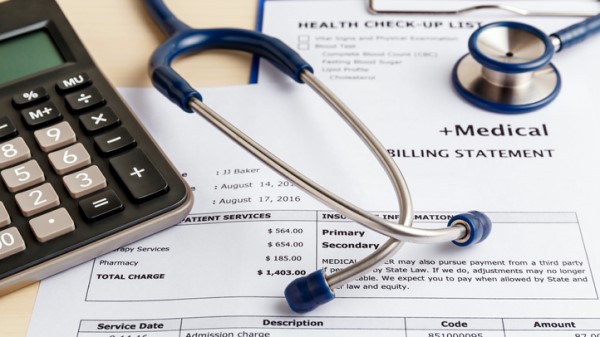
THE ISSUE
Massachusetts is one of the most expensive states for health care, and costs continue to rise. Escalating health care costs cause financial burdens for patients and reduce access to preventive, longitudinal care. While Massachusetts continues to focus
on efforts to slow overall health care spending, consumer costs, including premiums, co-pays, and deductibles, continue to rise, creating barriers to affordable care. As the 2023 CHIA Annual Report shows, private commercial health plan member cost-sharing
increased by 16.9% in 2021. At the same time, enrollment in high deductible health plans (HDHPs) grew by 4.1%, now accounting for 42.7% of total enrollments in the private commercial market. A 2021 CHIA study demonstrates the increased prevalence
of affordability challenges associated with HDHPs, where lower monthly premiums are offset by high deductibles and co-insurance, putting care out of reach for many.
Moreover, patients continue to struggle with the high and rising cost of prescription drugs, which negatively impacts health outcomes. An alarming number of nearly one-in-four residents in Massachusetts (22%)
indicated they cut pills in half, skipped a dose, or did not fill a prescription because they could not afford their medication. Although system-wide factors drive high medical bills, state-based efforts can be an important avenue toward reducing
care costs.
OUR STANCE
The Massachusetts Medical Society acknowledges the unsustainable increase in health care costs and is committed to partnering with stakeholders to address system-wide mechanisms to control costs while continuing to provide high-value, high-quality care
for patients. We are committed to working with the Health Policy Commission through its Advisory Council and supporting legislative and policy efforts to reduce health care cost growth and improve the affordability of care for patients in the Commonwealth.
OUR ADVOCACY
The Massachusetts Medical Society is actively engaged in partnerships to advocate for reducing costs and improving the affordability of care in the Commonwealth. In the 2023–24 session, the MMS supported and will continue to support a range of bills to
make health care more affordable and accessible.
- The MMS supported advocacy efforts led by Health Care for All, which led to the passage of a law
to establish a two-year pilot program to expand eligibility for the state’s ConnectorCare program to 500% of the federal poverty level (FPL) in the FY’24 state budget.
- The MMS supported , An Act providing affordable care through out-of-pocket assistance (H.1188/S.735),
which helps families struggling with high-cost, employer-sponsored health insurance by assisting with out-of-pocket costs.
- The MMS supported An Act reining in premiums through stronger rate review (H.944/S.614),
which strengthens the Division of Insurance’s rate review process by including consumer affordability as a factor in setting yearly premium rates.
Individuals and families in Massachusetts continue to struggle with high and rising prescription drug costs, cutting into household budgets and negatively impacting health outcomes. The MMS has been a longstanding member of the Prescription Drug Affordability
Coalition, spearheaded by Health Care for All. As part of the coalition, the MMS advocates for legislation to lower the cost of prescription drugs, including:
- An Act relative to pharmaceutical access, costs and transparency (S.749), testimony
- An Act to ensure prescription drug cost transparency and affordability (H.945), testimony
- An Act to reduce co-pays for people with chronic conditions (H.943), testimony
Through our Prescription Drug Affordability Coalition, the MMS helped pass a policy to address rising prescription drug costs in the MassHealth program, giving MassHealth tools to incentivize pharmaceutical manufacturers to negotiate additional supplemental
rebates for certain excessively priced drugs, which will achieve critical savings for the state and ultimately, patients. According to the past Baker Administration, in its first year of implementation, this program has saved the state Medicaid plan
$91 million in gross savings for 32 drugs.
Learn more about the Coalition’s legislative efforts here.
